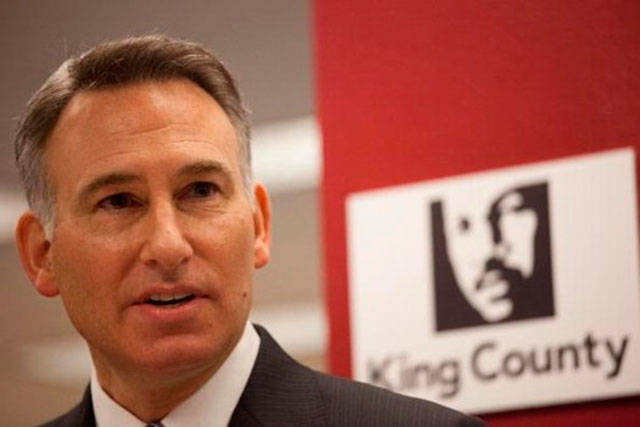King County Executive Dow Constantine introduced the theme, you belong here, during his eighth State of the County address on Monday.
Noting that 40 percent of the region’s population increase since 2010 has been from people not born in the country, Constantine said the region’s diversity was one of its greatest assets.
“All these people came here to seek a better life but they are making all of our lives better,” Constantine said at the Auburn Community and Event Center.
The theme of inclusion extends to all those “who seek to participate, thrive, and contribute to the life of our community,” said Constantine, citing progress on mobility, early-childhood interventions and climate protection.
Constantine pointed out:
• Last year, there were more than 20 million trips on RapidRide. Six routes now account for 17 percent of total ridership.
• Metro’s reduced-fare card for passengers who earn a lower income, ORCA LIFT, was used on nearly 5 million boardings last year.
• Transit ridership across King County Metro and Sound Transit climbed to its highest levels ever last year, totaling about 150 million rides in the King County area.
• King County’s Strategic Climate Action Plan is lauded as one of the nation’s best.
• Best Starts for Kids continues to support programs with a proven track-record of success, including the Nurse Family Partnership.
New centers to help connect services to youth in crisis
Responding to the needs of youth experiencing homeless, family crisis, suspension or expulsion from school and other challenges, Constantine announced plans to create two welcome centers with services and temporary housing.
Called “Safe Spaces” and operated by community non-profits, these centers would be available to youth who come in on their own, or are brought by law enforcement, parents, school officials, community mentors or case managers.
Safe Spaces would also serve youth who committed low-level crimes or violated a court order by running away from a foster or group home.
One of the centers would be located in Seattle, the other in South King County. King County’s Department of Executive Services is currently scoping appropriate sites and facilities.
The concept is based on a similar Juvenile Reception Center in Portland.
Safe Spaces is the latest innovation in juvenile justice, which includes Peacemaking Circles and other programs that offer an alternative to detention.
“This is the challenge: To travel together the long road toward our goal of zero youth detention,” Constantine said. “To meet our goals, we need a road map, and I look forward to working with this Council, community members and criminal justice leaders to join me in getting us there. But understand this: King County is united on pushing forward with the best ideas in juvenile justice reform.”
Veterans and Human Services Levy
Constantine described the success of the Veterans and Human Services Levy, passed by voters in 2011.
The current levy served more than 150,000 people, and tracks progress on 80 performance measures on four key strategies: supporting veterans, ending homelessness, increasing access to behavioral health services and strengthening families at risk.
After introducing Gary Cashman, a former Army Ranger who received housing assistance from the King County Veterans Programs, Constantine said the region must do more for the growing number of older people. The fastest growing segment of King County’s population is people over 80.
Public Health — Seattle & King County reports that rates of diabetes, heart disease and Alzheimer’s Disease are steadily climbing. Homelessness among older adults is on the rise.
“We must ensure that we can all age healthfully and continue contributing to our communities, whether it’s on the job, or helping taking care of grandkids, or informing our public priorities, or simply sharing a lifetime’s worth of skills and passions and experiences,” Constantine said.


